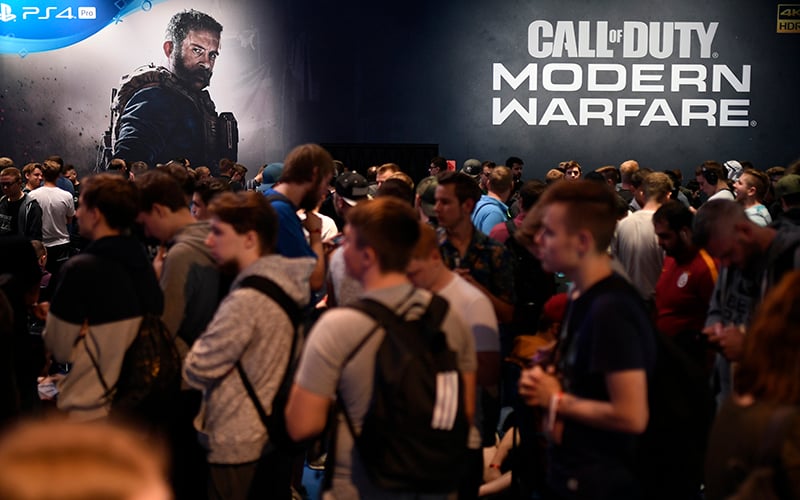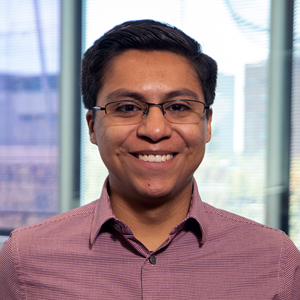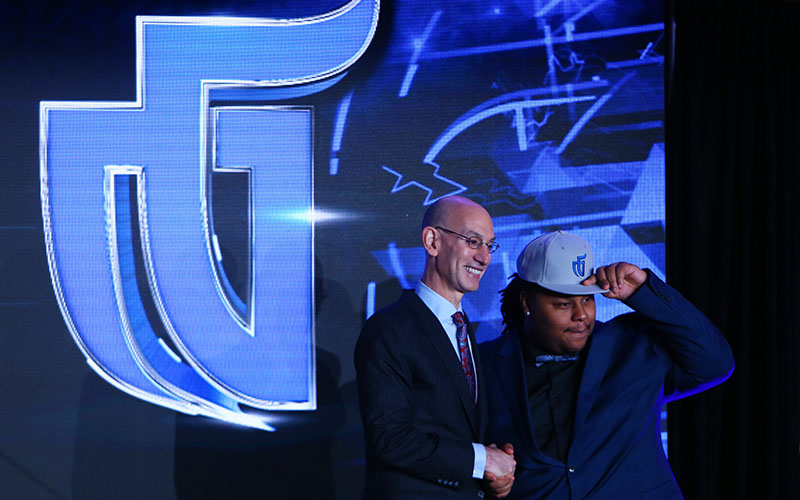
The popularity of Call of Duty: Modern Warfare extends to the collegiate scene, where Arizona State’s team is participating in the College Call of Duty League, which brings schools from around the country together to face off on Playstation 4. (Photo by INA FASSBENDER/AFP via Getty Images)
TEMPE – Arizona State‘s competitive “Call of Duty” team is playing in its first tournament since the team’s inception over the summer, and the outcome could have long-term implications for the program.
Team captain Steffen Fallini believes that placing high or winning the tournament could bring much-needed attention to the team, which is playing short-handed with two of five starters out because of personal reasons. Fallini hopes that a strong showing might eliminate the problem of dealing with last-minute substitutions and having to scramble to form a new team when players aren’t available.
“It would be so big for us if we can say that we finished top five or three in our division,” Fallini said. “Just to have that recognition immediately, we can have more people try out for next season so we can potentially have two teams. We will have a bigger pool of players we can try to win with.”
The College Call of Duty League, or CCL, is in its third year as a competitive league that brings colleges from around the country together to face off in “Call of Duty: Modern Warfare” on Playstation 4.
Jaden Shaw, chief executive officer of the CCL, moved on from founding director of Liberty University’s esports program to develop a league that could establish competitive play among collegiate players.
“We were really blessed with how the competitive “Call of Duty” community operates,” Shaw said. “As we grew it was just more and more amateur players, mid-tier amateur, and high-tier amateur players saying ‘Hey we love to compete, and we would like to represent our university.’ ”
Since its creation in the spring of 2018, the league has grown from six teams to 32 in 2019 and now up to 72 in this season’s tournament, which includes ASU.
“Each previous season served as its own marketing for the next one,” Shaw said.
Among the 72 teams, there are four divisions – Northeast, Southeast, Midwest and West – with 18 teams. ASU resides in the West Division, with competition like top-ranked Texas A&M Maroon and 18th-ranked University of Texas at Dallas, according to week three standings provided by the CCL.
After three weeks of competitive play, ASU stands at 2-2 with wins over University of Texas at Arlington and Tulsa, and losses to UT-Dallas and Texas A&M Maroon. The Sun Devils are ranked 14th among the 72 teams in the competition.
Despite the encouraging ranking, it hasn’t been the easiest journey for ASU’s “Call of Duty” team, playing without the two starters.
“It was rough. We’re playing with guys who we haven’t been scrimming with, so anytime we go from the five man we had before to running into this tournament and having the sub issues we have, is hard,” said Jacob Matson, ASU Esports Association president. “I still think we played well, but it definitely takes time for this roster to mesh together with the two different players we have than when we started the season.”
The two substitutes, Jeremy Gaudet and Daniel Ramirez, had to play catch-up in developing chemistry with the starters while following in-game tactics against their competition. The makeshift team only had a couple hours of practice together before competing.
“I feel like I need to pick it up a bit, because I haven’t been playing my best,” Gaudet said. “I’ve seen glimpses of myself playing as best as I could, especially in the UTD game. I just got to focus up and focus on my game, and if I can do that, then I’ll be golden.”
Following two more weeks of group play, eight teams will come out of division play and face an opposing division based on proximity. The Southeast faces the Northeast, and the West and Midwest face off. This format will continue until the Grand Finals.
“They (ASU “Call of Duty” team) come from a program where every team is successful,” Matson said. “From our standpoint, I don’t field teams unless I feel that we can be successful in what we do, because that is the lineage we have and what we are.”
The consensus around the “Call of Duty” team and ASU Esports Association is that the CCL is a good stepping stone for the future of the team and its involvement in the tournament.
“Rome wasn’t built in a day,” Matson said. “If this team takes a semester or two semesters to figure out where they are, then I got four years for this team to get where they need to be.”
ASU matchups have not yet been revealed.

